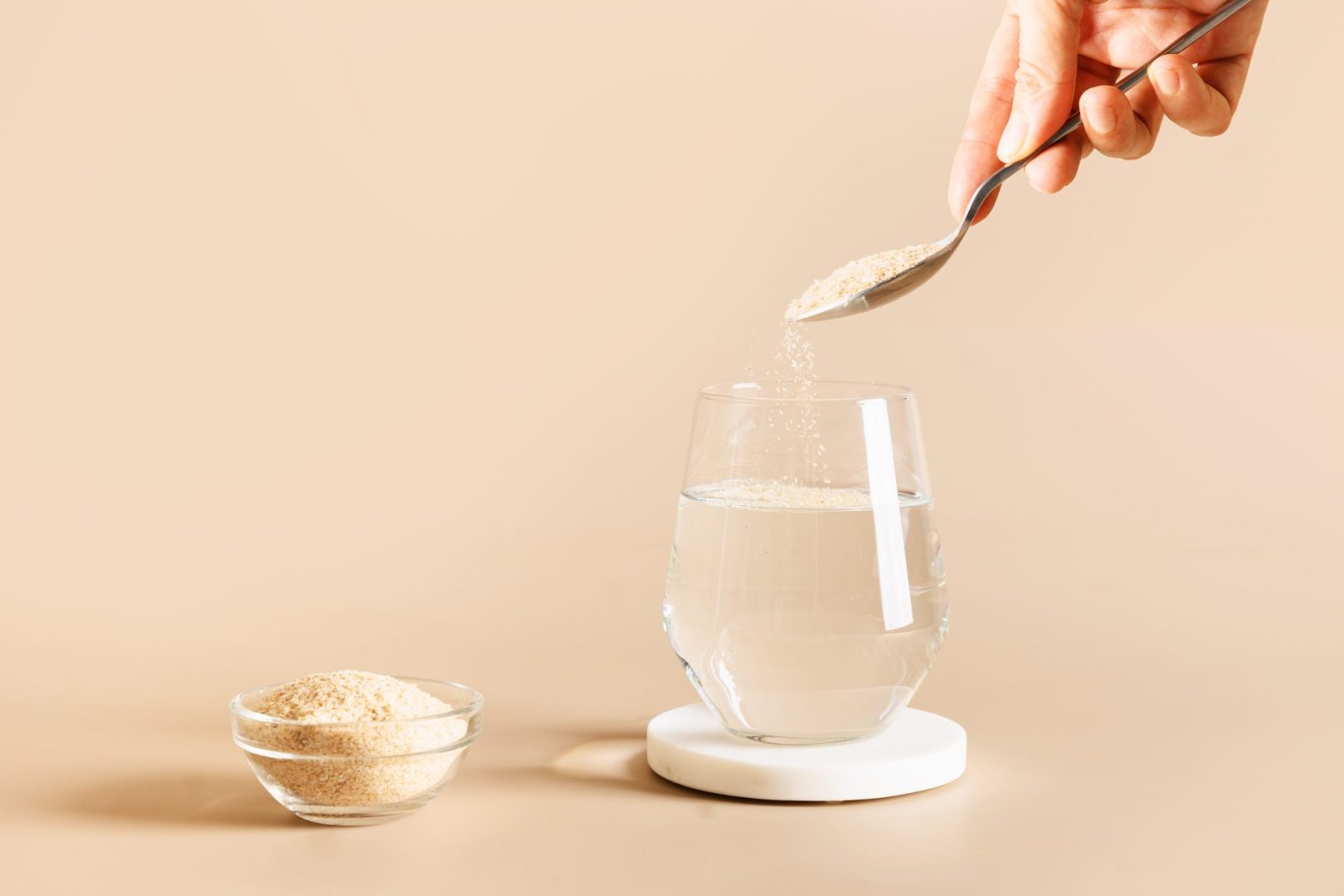Looking for a natural approach to weight management that won’t break the bank? This plant-based option might be worth considering.
As prescription weight management medications become increasingly difficult to access, many people are turning to more affordable alternatives they can find at their local pharmacy. One supplement gaining attention is psyllium husk, a fiber supplement derived from the seeds of the Plantago ovata herb native to India, which some have nicknamed “the poor man’s Ozempic.”
What exactly is psyllium husk?
Psyllium husk is a soluble fiber that works by absorbing water in your digestive system, forming a gel-like substance. This natural process has made it a popular supplement primarily used to improve digestive health for decades. The plant-based supplement can be found in powder, capsule, or tablet form at most pharmacies and health food stores.
Unlike prescription medications that require doctor appointments and potentially costly prescriptions, psyllium husk is available over the counter at a fraction of the cost, making it accessible to more people interested in weight management support.
7 potential benefits for those seeking weight management
- Increased feelings of fullness that may help reduce overall food intake throughout the day
- Potential regulation of blood sugar levels, which can help prevent energy crashes that lead to cravings
- Support for healthy cholesterol levels, contributing to overall cardiovascular health
- Improved digestive regularity, which many find beneficial for overall wellness
- More stable energy levels throughout the day compared to quick-fix solutions
- Gentle support that works with the body’s natural processes rather than forcing rapid changes
- Affordability and accessibility compared to prescription options that may be difficult to obtain
While the supplement has gained attention for these potential benefits, nutritional experts maintain that psyllium husk works best when incorporated into a comprehensive approach to health rather than used as a standalone solution.
How it differs from prescription weight medications
The difference between psyllium husk and prescription medications lies in their mechanisms of action. Prescription weight management drugs often work by mimicking natural hormones that regulate insulin and slow digestion, creating prolonged feelings of fullness through biochemical changes.
In contrast, psyllium husk functions more simply by increasing fiber intake, which naturally promotes satiety through physical bulk in the digestive system. This fundamental difference explains why the effects of psyllium husk tend to be more moderate compared to prescription alternatives.
The natural fiber supplement doesn’t require a prescription because it doesn’t alter hormonal function in the body. Instead, it works with existing digestive processes to potentially support weight management goals through improved satiety and digestive health.
Finding the right approach for daily use
For those interested in trying psyllium husk, starting slowly is key to success. Nutrition professionals suggest beginning with a small amount, such as half a teaspoon mixed in an eight-ounce glass of water, and gradually increasing the dosage as your body adjusts.
Adequate hydration is essential when taking psyllium husk. Because the supplement absorbs water in the digestive tract, failing to drink enough water could potentially lead to discomfort or constipation—the opposite of its intended effect.
The ideal timing for taking psyllium husk depends on individual preferences and goals. Some find taking it before meals helps increase feelings of fullness, while others prefer taking it between meals to manage hunger throughout the day. Following the specific instructions on product packaging is important, as formulations can vary.
Potential drawbacks to consider
Like any supplement, psyllium husk isn’t without potential side effects. The most commonly reported issue is increased gas, particularly for those unaccustomed to high-fiber diets. This typically resolves as the body adjusts to increased fiber intake.
Other possible side effects include bloating or digestive discomfort if the supplement is taken without sufficient water. These effects can usually be minimized by starting with small doses and ensuring adequate hydration throughout the day.
People taking medications should consult with healthcare providers before adding psyllium husk to their routine, as fiber supplements can potentially affect the absorption of certain medications. This consultation is particularly important for those with existing health conditions or those currently on treatment plans that could be affected by changes in nutrient absorption.
Creating realistic expectations
Perhaps the most important consideration when exploring psyllium husk for weight management is setting realistic expectations. The supplement isn’t marketed or recognized as a miracle solution for weight loss, and results vary significantly from person to person.
Health professionals emphasize that psyllium husk works best when incorporated into a balanced approach to wellness that includes thoughtful dietary choices and regular physical activity. The fiber supplement can support these efforts by potentially helping manage hunger and supporting digestive health but isn’t designed to replace fundamental health practices.
For those seeking gentle, natural support for their wellness goals, psyllium husk represents an accessible option without the barriers of prescription requirements or significant expense. This accessibility has contributed to its growing popularity among those interested in sustainable approaches to weight management.
As interest in accessible wellness options continues to grow, more people may find themselves considering plant-based supplements like psyllium husk as part of their health routines. With proper use and realistic expectations, this natural fiber might offer supportive benefits worth exploring for those on their wellness journey.














